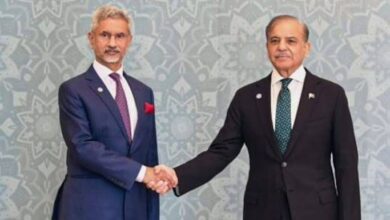How HR Leaders Thrive in Their Profession

-
Author
Sara Yahia -
Published
May 20, 2024 -
Word count
500
In the dynamic landscape of human resources (HR), where effective communication, networking, and people-centric skills are often hailed as paramount, there exists a cohort of professionals whose quiet strength and deep introspection often go unnoticed – the introverted HR leaders. Contrary to the stereotype that extroversion is a prerequisite for success in HR roles, introverts bring a unique set of qualities that not only enable them to excel but also reshape the way HR functions within organizations.
Understanding Introversion in HR Leadership
Introversion, as psychologist Carl Jung defined it, is characterized by a preference for solitude, quiet reflection, and a focus on internal thoughts and feelings. In the context of HR leadership, introverts may not naturally gravitate towards large social gatherings or thrive in the spotlight, yet their strengths lie in their ability to listen attentively, observe keenly, and analyze deeply.
The Power of Listening and Empathy
One of the hallmarks of effective HR leadership is the ability to listen empathetically to employees’ concerns, grievances, and aspirations. Introverted HR leaders excel in this domain, as they are naturally inclined to listen actively without interjecting or dominating conversations. Their quiet demeanor often creates a safe space for employees to express themselves openly, fostering trust and rapport within the organization.
Strategic Thinking and Analysis
Introverted leaders are known for their contemplative nature and penchant for strategic thinking. In HR, where decisions often impact the entire organization, introverts bring a valuable perspective by carefully analyzing data, trends, and organizational dynamics before making informed recommendations. Their thoughtful approach ensures that HR initiatives align with the long-term goals of the company, leading to sustainable growth and employee satisfaction.
Creating Inclusive Work Cultures
In a world where diversity and inclusion are top priorities for organizations, introverted HR leaders play a pivotal role in championing these values. Their preference for deep connections over superficial interactions allows them to empathize with individuals from diverse backgrounds and create inclusive policies that accommodate varying needs. By fostering a culture of acceptance and belonging, introverted HR leaders empower employees to bring their authentic selves to work, thereby enhancing productivity and innovation.
Effective Communication and Conflict Resolution
While introverts may not be as outwardly expressive as their extroverted counterparts, they possess strong communication skills honed through careful observation and reflection. In HR, where conflicts and difficult conversations are inevitable, introverted leaders excel in navigating delicate situations with tact and diplomacy. Their ability to communicate clearly and concisely helps to de-escalate conflicts and find mutually beneficial resolutions, fostering a harmonious work environment.
Conclusion
In the fast-paced world of HR, introverted leaders are often unsung heroes, quietly driving organizational success through their unique blend of introspection, empathy, and strategic thinking. By embracing their introversion and leveraging it as a strength rather than a limitation, these leaders pave the way for a more inclusive, empathetic, and effective HR profession. As organizations continue to recognize the value of diversity in leadership, introverted HR leaders are poised to make an indelible mark on the future of work.
This article has been viewed 99 times.
Source link




